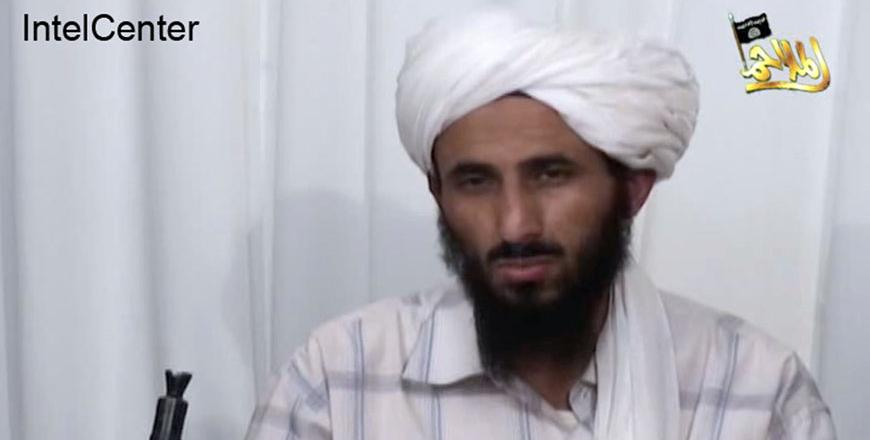You are here
In Yemen chaos, Daesh grows to rival Al Qaeda
By Reuters - Jun 30,2015 - Last updated at Jun 30,2015
DUBAI — Al Qaeda's leadership of Islamist militancy in Yemen is being challenged amid the chaos of civil war by its rival Daesh, which could become a bigger threat to the group than the US drones that periodically kill its commanders.
Al Qaeda in the Arabian Peninsula (AQAP) remains the country's top militant network and its several thousand fighters and bomb makers, who have repeatedly tried to bring down Western aircraft, are still seen as a serious threat by Washington.
But followers of Daesh in Yemen have sought to steal Al Qaeda's thunder by launching a string of attacks against the Zaydi Shiite Muslim Houthi group, which is fighting a messy war against a Saudi-led coalition of Arab counties.
Daesh evolved from the Iraqi branch of Al Qaeda and now controls swathes of Iraq and Syria. It broke from the Sunni Muslim group founded by Osama Bin Laden and has declared a caliphate to rule over all Muslims.
Aimen Dean, a former Al Qaeda insider who now runs a Gulf-based security consultancy, said Daesh began setting up a presence in Yemen a year ago, with about 80 people, and now had about 300 militants.
Copious funding from Daesh’s coffers, Al Qaeda's inability to stage regular spectacular attacks on Houthis, and losses of Al Qaeda leaders in drone attacks had discouraged its habitual supporters and led to a series of defections.
"They are supplanting Al Qaeda and presenting themselves as the credible alternative," he said of Daesh.
A decision by AQAP to embed some of its fighters among Sunni tribal units fighting the Houthis had allowed Saudi intelligence to learn the location of its leaders, resulting in successful US drones strikes over the last few months, he said.
One of the AQAP commanders lost to drones was the group's leader Nasser Al Wuhayshi, also Al Qaeda's global number two, killed in the southern port city of Al Mukulla in early June.
While most analysts agree that AQAP remains resilient, some argue that US methods, including drone strikes, help create a climate conducive for the nascent Daesh to attract new followers.
"This is a pattern that we had seen in Iraq and Syria," said Ibrahim Sharqieh Frehat, conflict resolution analyst with the Brookings Doha Centre. "The problem with the Americans is that they deal with the problems with the same tools — bombings. Weakening AQAP will only give way to Daesh to be born," he said, referring to Daesh by its Arabic acronym.
Katherine Zimmerman, research fellow at the American Enterprise Institute (AEI), said Daesh’s expansion has so far not affected AQAP's dominance.
"The challenge is one that may come in the future: should ISIS [Daesh] come to dominate the fight against the Houthis in Yemen, AQAP may be marginalised and placed in a position where it has to respond," Zimmerman said. To show its power, Al Qaeda might be pressed to attack Western targets or provide more support for anti-Houthi militias.
Small but deadly
Yemen is a traditional stronghold for Al Qaeda's most active branch, which was founded in 2009 by the merger of the Yemeni and Saudi wings of the network founded by Bin Laden.
Its plots against Western targets included an attempt to bomb a US-bound airliner on December 25, 2009, and it inspired militants elsewhere with astute English language propaganda.
It also claimed responsibility for an attack on the Charlie Hebdo magazine in Paris that killed 12 in January, although some analysts suspect its role was more inspirational than direct.
But its hold on its local followers seems to be slipping.
In February, the US-based SITE monitoring centre reported that a group of purported AQAP supporters had announced their defection to Daesh in a message on Twitter.
"We announce breaking the pledge of allegiance to the sheikh, the holy warrior and scholar Sheikh Ayman Al Zawahiri... We pledge to the caliph of the believers Ibrahim Bin Awad Al Baghdadi to listen and obey," they wrote, according to SITE.
Zawahiri is Bin Laden's successor as Al Qaeda leader. Baghdadi is the leader of Daesh.
Daesh began operations in Yemen in March with a pair of big suicide bombings against two mosques where Shiites worship in the capital Sanaa that killed a total of 137 people and wounded at least 357.
Earlier this month, the group's "Sanaa governorate" killed two people and wounded 60 in coordinated car bombs targeting mosques and the headquarters of the Iranian-allied Houthi group.
The Sanaa province branch of Daesh was officially launched in April with a nine minute recording on Twitter showing 20 armed men parading somewhere in the desert.
Deploying its signature sectarian rhetoric to promote its cause, the recording deplored Sunni Muslims to "mobilise to where the soldiers of the Caliphate to work together to bring down the rejectionists" — a reference to Shiites.
Yemeni news website www.almasdaronline.com reported on Sunday, quoting tribal and military sources, that a senior AQAP leader, Jalal Baleidi, had switched allegiance to Daesh and set up a training camp for its militants in a remote area of the Hadramout province close to the border with Saudi Arabia.
Baleidi made news headlines last year when he led a group of AQAP militants in capturing a group of Yemeni government troops travelling from Hadramout to Sanaa on home leave and killed them with knives using Daesh-style techniques.
Like AQAP, Daesh draws on austere Sunni Muslim teachings of scholars like Imam Ibn Hanbal and Mohammed Ibn Abdulwahhab, the father of Saudi Arabia's school of Islam, which sees shrines as blasphemy and regards Shiites as infidels.
However, Daesh believes killing Shiite civilians is a religious duty, a position that even Al Qaeda has criticised as recklessly violent.
"There is increasing evidence that the Islamic State, or those who subscribe to its ideology, are already operating in Yemen," said Barbara Bodine, director of the Institute for the Study of Diplomacy at Georgetown's Edmund Walsh School of Foreign Service in Washington D.C.
"Like their Iraqi counterparts going back to post-2003 Iraq, they target Zaydi religious and historic sites, not just government forces as AQAP largely has," said Bodine, a former US ambassador to Yemen.
Challenge
AQAP still participates in almost daily battles with the Houthis alongside tribal fighters, Southern Resistance forces and supporters of exiled President Abed Rabbo Mansour Al Hadi.
But analysts say competition with Daesh is likely to increase.
AQAP and Daesh followers have already been trading barbs on social media, especially over the death of Wuhayshi, where both sides have accused each other of being penetrated by local or international intelligence agencies.
Dean said he estimated the two groups were three to six months from any armed conflict erupting between them.
Ludovico Carlino, an expert on Yemeni jihadists, recently wrote that both Daesh and AQAP were expected to try to exploit Yemen's security vacuum to increase their capabilities and plot attacks against Yemeni forces, Houthis and any vestigial Western presence to show their relevance.
"The Islamic State's [Daesh’s] growing influence is likely to lead to greater competition among jihadists in Yemen," he wrote in IHS Jane's Defence weekly in March.
Related Articles
DUBAI — Al Qaeda confirmed that its second-in-command and the head of its powerful Yemeni branch was killed in a US drone strike, in the hea
ADEN/KUWAIT — Yemeni and Emirati troops advanced into the southern port city of Mukalla on Sunday, officials and residents said, entering a
ADEN — Twenty-one separatist fighters and six members of Al Qaeda's Yemen branch were killed on Tuesday in an attack by the extremist group

















